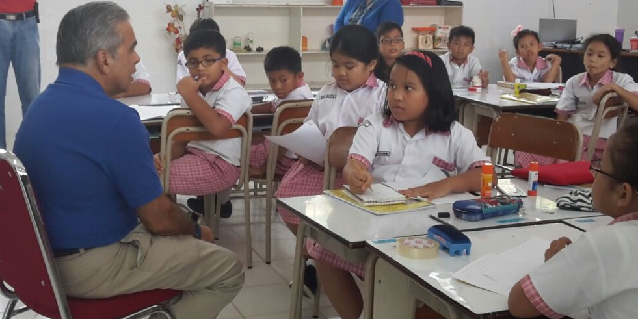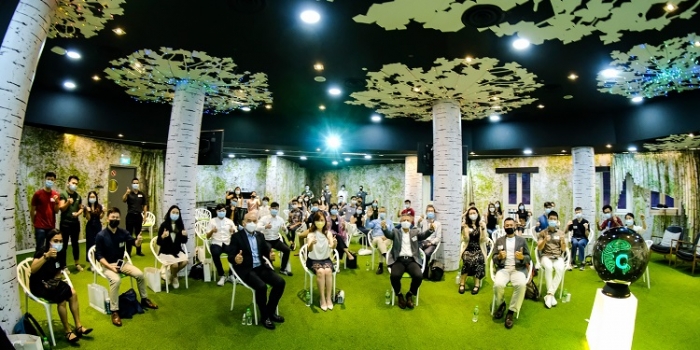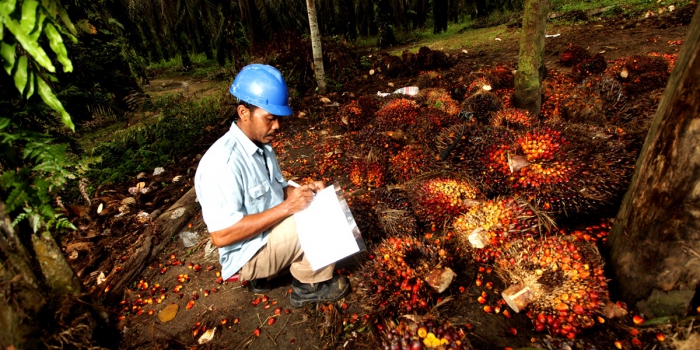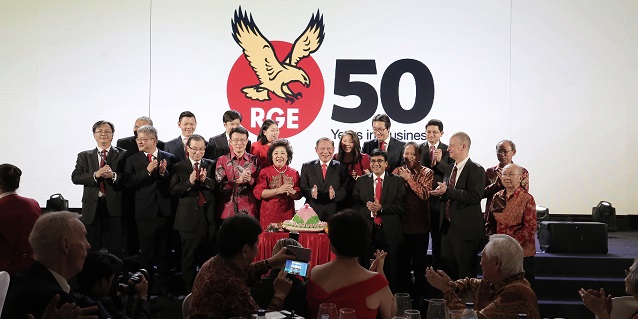 Kishore Mahbubani is Dean and Professor in the Practice of Public Policy of the Lee Kuan Yew School of Public Policy at the National University of Singapore. He previously served for 33 years in Singapore’s diplomatic service and is recognised as an expert on Asian and world affairs. (More)
Kishore Mahbubani is Dean and Professor in the Practice of Public Policy of the Lee Kuan Yew School of Public Policy at the National University of Singapore. He previously served for 33 years in Singapore’s diplomatic service and is recognised as an expert on Asian and world affairs. (More)
In July 2016, RGE was honoured to host Professor Kishore Mahbubani and his colleagues from the Lee Kuan Yew School of Public Policy for a visit to Kerinci, Riau, Indonesia. He visited APRIL’s pulp and paper operations, eco-restoration project in Kampar Peninsula, and community development sites and schools supported by RGE and Tanoto Foundation. We thank Prof Kishore for kindly contributing the following piece that captures his reflections from the visit:
Reflections on the haze
I was happy to visit the Riaus to understand the operations of RGE the company. While I was there, I also took the opportunity to analyse the haze problem that has persisted for much of the last two decades. As a result, the visit achieved two objectives I had set for my team and myself.
First, I learned that the haze is clearly a complex, long-term and multi-dimensional problem. There’s no silver bullet for it, and no short-term fixes. Indeed, there are multiple causes of the haze problem, which partly explains its persistence. The causes include poorly-defined property rights (leading to the problem that economists call the tragedy of commons), weak enforcement capacity on the part of the local authorities, the unimaginably (for a Singaporean at least) large area over which poorly-resourced enforcement agencies are responsible, and in some instances the lack of cheap alternatives to burning as a way of clearing land.
Because the problem is complex and long-term in nature, Singaporeans have to accept that the haze is not something that will disappear overnight. We have to understand that the issue defies easy solutions due to its scale and complexity. Furthermore, the Singapore government does not have access to many of the policy levers that are needed to address the problem comprehensively.
And because the haze is also a multi-dimensional problem, the solutions to it will have to come from many stakeholders – not just the government, nor just plantation owners, but also from civil society, local communities and consumers at large. This requires a high level of sustained policy coordination across multiple sectors and jurisdictions.
Reflections on RGE’s sustainability efforts
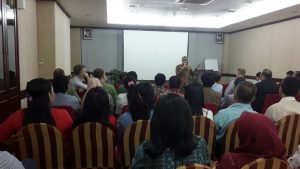
Prof Kishore Mahbubani Speaks with RGE Staff
Second, I was heartened to see that RGE took its environmental responsibilities very seriously. Its sustainability programme is professionally managed, and it seeks to adopt the highest standards in the paper and pulp industry. It also engages environmental NGOs and local communities quite intensively.
I was also struck by the efforts taken by RGE to prevent fires from occurring in the first place – because putting out a fire is far costlier for the company than preventing one. The Fire-free Village Programme is one of those rare ideas that is good for the environment, for the business, and for the local community. I hope this programme can be implemented more widely in the Riaus.
I had the chance to visit RGE’s community development projects. Again, I thought these projects showed great potential in developing economically viable alternatives for local communities. I also appreciated the evening session with the staff where they clearly displayed a very keen interest to understand ASEAN. The staff showed a keen appreciation of the interconnectedness of the work that they do, and the impact of their work on the region that they are in.
Reflections on economic development
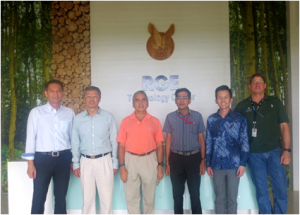 Third, the trip gave me the opportunity to reflect on the difficult task of economic development – even when a country is blessed with an abundance of natural resources.
Third, the trip gave me the opportunity to reflect on the difficult task of economic development – even when a country is blessed with an abundance of natural resources.
While RGE is clearly a very successful and well-managed company, and its rapid growth has clearly “spilled over” to the nearby town of Kerinci, the fact remains that there are too few of such success stories in Indonesia. Economic development requires as much investment by the state (in infrastructure, in public goods, in education and health, in industrial development) as it does by private companies. As Amartya Sen once said, development requires the invisible hand of markets to be complemented by the visible hand of governments.



